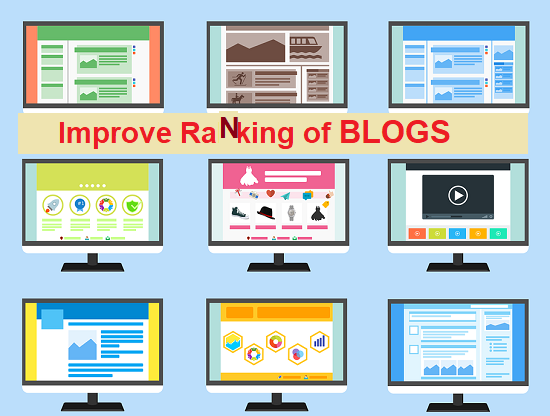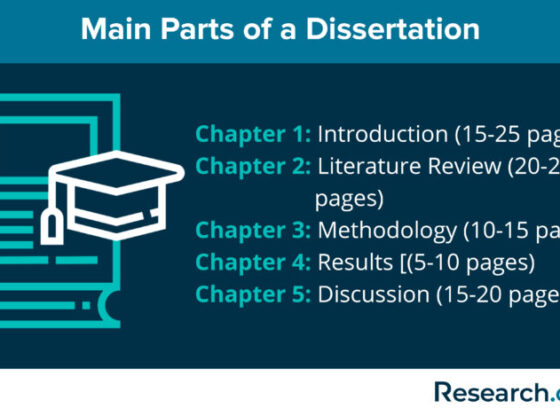Reasons Your Blogs Don’t Rank Organically
Blogging is an integral part of website operations. It should be carried out actively to offer fresh content alongside incorporating the rest technical factors like Search Engine Optimization (SEO) operational strategies. Regular blog posts offer a dual advantage to improving the organic ranking of websites once people start reading them and thus they generate traffic to the best extent possible. Such traffic finally reaches the next level to convert into business leads with more customers in your fold. Be aware of the Reasons Your Blogs don’t Rank Organically.
It is obvious that once your blog posts rank organically on top, you start receiving client responses as public opinion on the respective blogs. This is how you are being recognized through such an effective medium of obtaining organic rankings. Huffington post reveals that blogs have been rated as the 5th most trusted source to get accurate online information
What matters the most is that you invest your time, energy, and resources to create informative blog posts. By making them unique and exclusive, you definitely leave an impeccable impact on general readers to turn them into loyal customers in the respective industries you deal in.
Unranked blogs will lose organic traffic

In case your blog posts fail to rank organically, you are literally on the verge of losing organic traffic which was the core idea and ambition to create the blogs. It has already been evaluated, researched, and confirmed time and again that organic traffic improves the ranking of a website thus that can’t be ignored or ruled out at any level. If your blogs struggle to get organic rankings to drive traffic, then it is impossible for you to bring improvement in sales to smoothly grow a company.
Countless benefits are there when you write blogs and post them regularly. Blogs keep potential customers engaged on your website. Furthermore, they equally invite the readers to visit the website regularly to explore that to the maximum extent possible. It is a proven fact now that blogging remains one of the best ways to establish communication with both existing as well as potential customers. Many marketers use blog posts to restore online reputation as well.
Here are some key reasons why blog posts fail to rank properly on Google search results.
1. Lack of social media presence
Make your posts viral by sharing them on different social media channels. Apart from bringing traffic to your website, such steps will equally improve the branding of your organization due to its easy reach to millions. Some popular and frequently used social media channels including Facebook, LinkedIn, Twitter and Google Plus et al can be used for such purposes. They will indeed create wonders for your blogs to get channeled to hundreds of thousands of people in one go.
As above mentioned popular social media sites are noticeable all they start generating social signals and therefore resultant impact would be their direct effect on Google rankings. It is proven that search engines notice social media activities.
2 Absence of link-building strategy
While publishing your blog posts, you must ensure having a proper and highly workable internal and external link-building strategy in place. You should interlink with your previous posts to increase page visits to improve the website’s SEO. This is how you get noticed by most people. On the other hand, you should also link out to as many authority sites as possible to keep your readers in the loop.
While building backlinks for your website, ensure you follow all elements of anchor text optimization for SEO.
Related: Link Juice and Its Notable Benefits in SEO
3. When you are new
Search engines usually take some time to recognize new blogs and index them properly. Remember that the more time your blog has been around, the more likely it will be indexed by search engines, especially Google. While updating your blogs, you should thus try to keep long-form content instead which is preferred by Google and the rest search engines. Don’t forget to optimize the keywords, meta titles, and descriptions that best support your SEO strategies.
If you have a question about Why Your Blog Posts Don’t Rank Organically, then remain calm and wait for the time.
4. Forget building a link to the post
Link building has been considered the number one activity to improve the ranking of any website in question. Once you upload a blog post, don’t forget to promote that online. Write content and link back to the posts. This way you improve traffic and rankings. All of this takes time, but you have to stick to your long-term goals.
5. Write readable contents

If your created content isn’t interesting and readable, then you hardly avail benefit because there are increased chances of bounce rates to mar your site. It is thus necessary to write scannable and readable content that can prove worthy for you in all respects. Such content is loved by readers as humans and so are they approached by the search engines as machines. Use images, headers, sub-headers, line breaks, and bulleted lists as much as possible. There are some additional steps that bring transformation to improve the blog’s readability as well as the engagement level.
6. Include 1–2 keywords in specific parts of your post
When you are determined to write SEO-friendly blog posts, you must have knowledge about keyword density. If you use the keywords carefully, you will be successful in getting your website ranked on SERPs.
There are five essential places in your blog where you should try to include your keywords naturally including the title tag, headers, body, URL, and meta description.
A. Title Tag
Title Tag optimization plays the second most important on-page ranking factor for any website, after content. While writing the titles, make sure to include your keyword within the first 60 characters of your title. The reason is, that after the first 60 characters, Google cuts titles off on the SERP.
Apart from inserting a keyword, you should use crisp language so that it gets the search engine’s and reader’s attention. Remaining updated with SEO best practices for blogs is also helpful to improve blog post rankings.
B. Headers
Try to incorporate your long-tail or short-tail keywords in the H1, H2, H3, and H4. Do not push the keywords unnecessarily at the risk of being penalized for keyword stuffing. This means using your tweaked keywords only in a natural, reader-friendly way.
C. Body
Mention your keywords at a normal pace throughout the body of your post. Before you start writing a new blog post, you should be well-armed with the list of keywords and strategies on how to incorporate them into your post. Your primary idea should be to convince your readers to read and take action.
If you know how to write SEO-friendly blog posts, your posts will rank with minimum SEO efforts.
D. URL
URL Optimization for SEO will help you improve the ranking of your pages in Google and other search engines. Incorporating keywords in the URL is a great way to let the search engines understand the topic of your post. In addition, URLs are the first thing search engines crawl on a page.
The length of the URLs should be short meaning 3 to 4 words only.
E. Meta Description
The primary aim of the meta description is to give search engines and readers information about the topic of your blog post. While writing content for meta description, ensure you use your keywords in a natural way.
Do you know how to check a blog’s ranking? There are many free tools available online. Check the ranking of the blogs and start modifications so that you get success in improving the rank of old blog posts.
7. Maintain blog frequency
Try to upload blog posts on your website regularly and maintain the frequency as regular content keeps the readers & search engine bots happy. Make a calendar for blog updation and remain stick to it, so that you achieve your goals.
It is not necessary to publish a post daily, you may publish a post in a month. But, ensure you post one post each month and it is high-quality and well-researched. If you want your Blog Posts to Rank Organically, maintain blog frequency.
8. Avoid Unethical Ways
When you are looking for ways to improve blog post rankings, you must avoid unethical ways, including link farming. Such black hat SEO tricks can result in getting your blog blacklisted. Ethical ways may take time, but they will ensure a sure shot results in the long term to increase organic ranking and thus traffic.
SEO is not rocket science; it takes time to show up a result. You must learn ways and tailor strategies to make your blog posts go viral and achieve rankings on Google. These tricks will help you improve your blog posts’ organic rankings instantly.
9. Create Long-Form Content
First of all, it is important to note that there is no precise, “optimal” word count, but long-form content, which should be approx.1000 words to 2000 words have a higher chance of getting a place on SERPs.
Many researchers and SEO professionals have confirmed that high-ranking posts tend to be longer and more in-depth. If you are looking for ways to improve the rankings of your blog posts, keep the content long. Apart from working on your new blog posts, you should also keep in mind ways to maintain the organic ranking of blog posts, which already have attained the top position in search engines.
10. Improve Your Site’s Load Speed
A 1-second delay in page load speed could lead to 11% fewer views, a 16% decrease in customer satisfaction, and a 7% loss in conversion. On the other hand, page load speed is considered one of the major ranking factors, which means you need to make your pages load faster to rank well.
There are many free page speed checker tools available, where you need to put your URL and push “start to analyze”. You will get the result instantly.
11. The Competition is Too Stiff
In case your blog post does not rank on page 1 for your target keyword, though it has been crawled and indexed may point to one of the most likely reasons that you may have targeted a highly competitive keyword. For example, let’s say you are a new entrant to travel blogging and wrote a piece called “Best Things to Do in Paris”. It is improbable that you would be ranking for this search term when there are already too many competitors beforehand.
If you search on Google “Best Things to Do in Paris”, you will come across numerous search results dominated by high authority sites like Trip Advisor, Lonely Planet, Time Out Magazine and Conde Nast to name a few. And competing against such big sites for a small/new blog would certainly remain a challenging task.
12. Your Blog Post Lacks Relevance
Google’s algorithms are designed to sort through hundreds of billions of web pages to find the most relevant, helpful answer to any search query. And Google is very good at ensuring that so far as the search results are concerned, they are relevant to the search query.
Just think, if you Googled ‘How to Make Mango Shake’, you would naturally expect to see tutorials and recipes for making mango shake on the first page of Google—you would not be interested to see tutorials and recipes for how to make pineapple shake. Neither would you like to see how to repair your kids’ toys or a list of ways to teach your kids the rhymes. This is one of the main reasons for not allowing your blog posts to rank organically.
13. Go for Updates
Your websites can begin declining rankings if you don’t regularly update your content. With this fact notwithstanding that the age of your domain may also hold some weight in determining organic ranking, it also can’t be ruled out at the same time that it won’t matter much if your content is stale and not fresh. It must be kept in mind that search engines care that in producing relevant, authoritative, optimized content, you are keeping up with everyone else.
It’s high time you gave your web content a significant audit if you have failed to do so in more than a few months. Don’t delay and commit yourself to do exactly that. You need to look at the keywords your content is using and go for updates where necessary. To Improve Blog Post Rankings, check the content now.
14. Weak Link Profile
There are no two opinions that inbound links matter a lot. You are mistaken if you assume great content will rank without an effortful link-building strategy. Thinking from Google’s perspective will make you realize that Google is on finding your content strong, keywords fresh, and updated regularly, but if your site lacks any inbound links, why will it rank you high? For all Google knows, some lacunae on your part keep other sites from wanting to link to you. Consequently, Google wants to keep you out of its top rankings.
15. Technical SEO Issues
If you are looking for Reasons Why Your Blog Posts Aren’t Ranking on Google, there might be some technical issues. The issues could be slow page loading, poor mobile optimization, and broken links can all have a detrimental impact on your rating. Perform a technical SEO audit to detect and resolve these issues.
Final Thoughts – Reasons Why Your Blog Posts Don’t Rank Organically
Being a little bit cautious while writing blog content and uploading it will definitely prove helpful for you to get them ranked on search engines. Organic ranking is mandatory to obtain traffic and improve the ranking of blog posts which can be converted into paying customers thereafter.
Experts at our Content Agency in Greater Noida, India are hopeful that the above-mentioned tips have proved greatly helpful to our esteemed readers. In case you still have any confusion or doubt, do let us know. Our webmasters are available round the clock. We will resolve all sorts of reader queries. Our team always ascertains to provide an appropriate response. Now you do not have any query on Why Your Blog Posts Don’t Rank Organically.
Some Related Posts:












